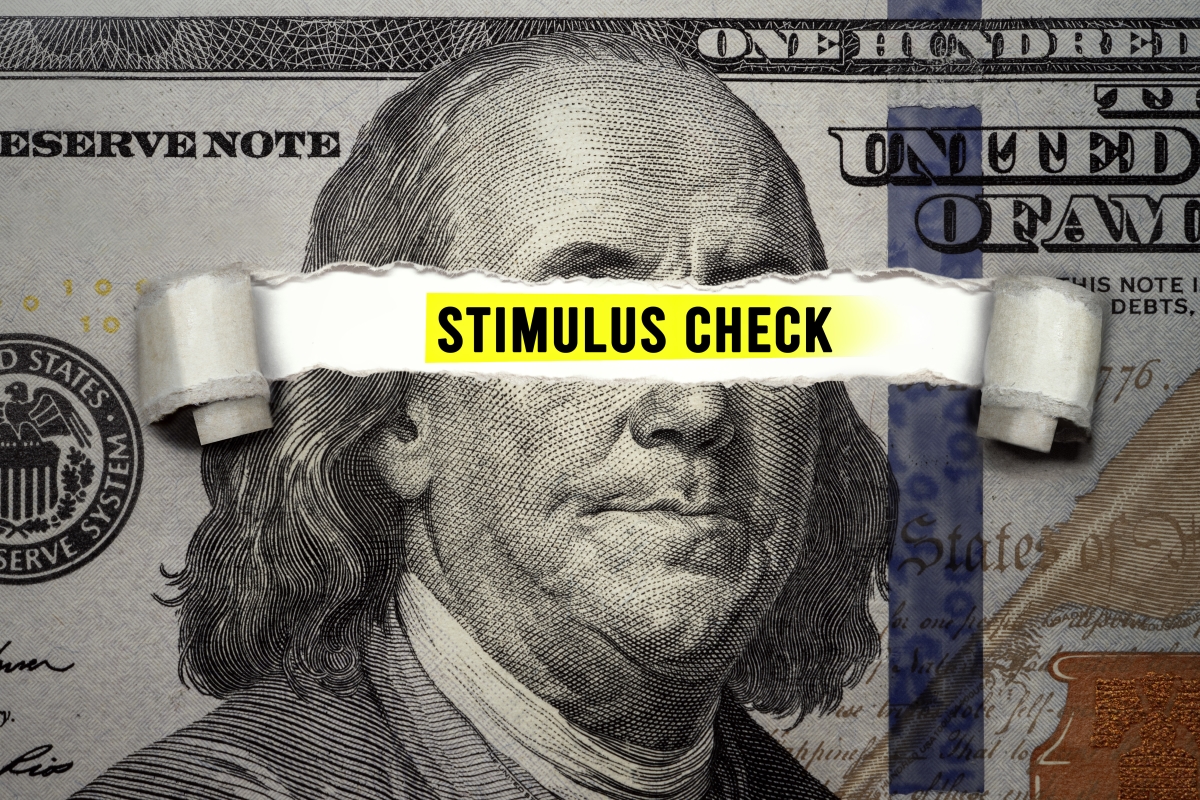Approximately two weeks are left to get a stimulus check. Registration with the IRS must be completed within this time to ensure receipt of a federal relief payment. Adults with low incomes and college students are believed to be among those who qualify for a check but have not yet received one. The Internal Revenue Service is planning on contacting individuals potentially eligible for a stimulus check on November 10th.
Potential recipients will be informed quick action is required to ensure the November 21st deadline for registration is met. Stimulus checks were authorized by the CARES Act in March. Eligible individuals receive a check for $1,200, a maximum of $2,400 for married couples and $500 for every dependent below the age of 17. The tax agency urged approximately nine million individuals to register using the Non-Filers tool to help ensure qualification for a stimulus check.
Letters have been sent in the mail informing these individuals about the money. These letters are for adults not required to file a tax return including college students not claimed by their parents as dependents, households with low incomes and senior citizens. These individuals were missed by the tax authority when checks were issued. Recent tax returns including home addresses or direct deposit details were used to determine where the money was sent.
Individuals not required to file an annual return were missed. College students supporting themselves are urged to be careful payments are not overlooked. According to tax agency commissioner Chuck Rettig, students can benefit from a little research. A letter has been sent to individuals not usually filing an annual tax return regarding registering to receive a stimulus check. A warning was issued on Monday by the Federal Trade Commission.
All consumers receiving a text, email or phone call claiming to be the IRS offering assistance in receiving a stimulus payment are encouraged to be cautious. These types of communications are scams. According to the FTC, the tax agency is not using these channels to contact individuals regarding stimulus payments. Individuals should receive a letter from the Internal Revenue Service instead. The tax agency is providing a Non-Filers website for registration.
Eligible consumers can use this website to provide the tax agency with bank account details. The funds are expected to be wired by the end of the year. If banking information is not provided, the individual will be sent a check through the mail. If a check is not received and the consumer registers later than November 21st, federal income tax must be filed for a stimulus check to be claimed. In some instances, consumers may have to wait until the beginning of 2021 to file a tax return for 2020.
Just because an individual receives a letter from the IRS regarding a check is not a guarantee of eligibility. There are individuals excluding from receiving payment including immigrants that do not have a green card. Attempts are being made by the IRS in tracking eligible consumers not yet receiving payment at the same time millions of people are waiting for the second round of checks. Hope for more financial relief during the pandemic is currently in limbo due to the presidential election.
The results for key battleground states have not yet been determined. This is important since the stimulus talks will most likely not resume until the outcome of the election is known. Consumers are still eligible to register for payment through the tax agency website tool. The tool can be accessed directly at irs.gov with no cost for registration. Checks can be received faster by selecting the direct deposit option as opposed to having a paper check sent through the mail.
For individuals with no access to the internet or unable to use the tool, a federal income tax return can be filed for 2019 even if the individual does not earn enough to file or if their income is non-taxable. Taxpayers are encouraged to use an IRS Free File, tax software or a tax preparation service to file electronically. The Non-Filer tool will become unavailable after November 21st. According to Chuck Rettig, this tool was developed to help individuals who have not yet receive a payment and still need to register.
This includes both underserved communities and low-income households. The tax agency has a deep involvement in the processing and programming overlapping during the filing seasons. An extension after November 21st will not be granted since the impact on working on the filing seasons for 2020 and 2021 would be negatively impacted. The Non-Filers portal was launched during the Spring. Since then, millions of Americans have used the portal successfully.
Approximately nine million Americans will receive a letter in the mail from the IRS with instructions on receiving a stimulus check through the mail. These individuals have been identified as potential recipients of stimulus funds not required to file income taxes in 2018 or 2019 due to low-income levels. The basis of this information is internal analysis forms including third-party statements and 1099 and W2 forms sent to the tax agency every year that have not been matched with income tax returns.
In most instances, this includes Americans with a maximum annual income of $12,200 or less when filing as single or $24,400 or less when filing as a married couple. The official name of this letter is Internal Revenue Service Notice 1444-A. The letters will be sent in both English and Spanish. The letter encourages non-filers to visit irs.gov and register by the deadline to receive a stimulus payment before the end of the year.
Any individual missing this date will need to wait until the following year to claim their credit. This can be accomplished on the federal income tax return for 2020 which is filed during 2021 before a stimulus payment can be received. Any individual normally not required to file a tax return is running out of to receive a payment. Registration is easy and fast with everyone urged to share information to enable as many individuals as possible to register before the deadline.
The standard deadline of October 15th of 2020 is still in effect for filing income tax returns. The deadline for filing federal income tax has not changed due to the registration extension to receive a stimulus check. This is the same October 15th deadline applicable for federal income return extensions available during every normal year. The tax agency usually provides six months after the due date to file income taxes when an extension has been received.
Due to the pandemic, the date for 2020 was July 15th instead of April 15th. The extension request begins on the original due date of April 15th as opposed to the revised date of July 15th. All federal income tax returns including extensions must be filed no later than October 15th even if the request was for an extension to July.






